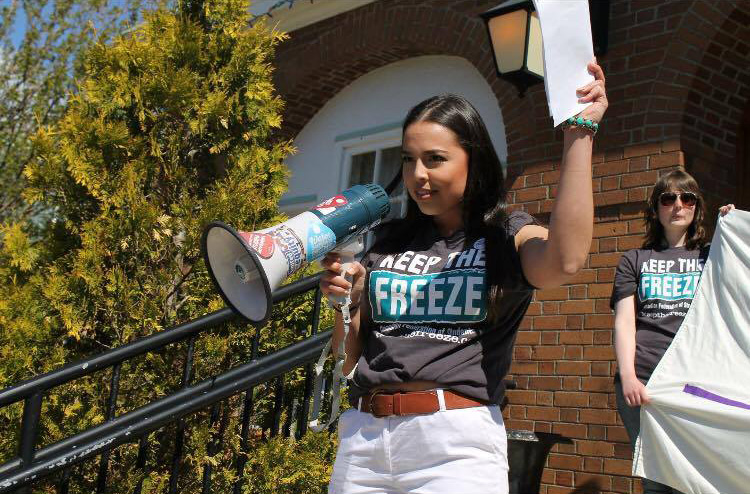With the province in a state of fiscal turmoil, is it time for students to shoulder part of the burden?
Emily Lyver
Kicker
Tuition prices have been an ongoing debate in the province for years, but the current fiscal crisis may up the ante.
Caitlin LePatourel, president of College of the North Atlantic’s student representative council at the Ridge Road campus, says it’s always a nerve-wracking thought for students.
“I know speaking for myself, and for a lot of students that I know across the province at all 17 campuses, it’s extremely scary,” said LePatourel. “A large portion of our students can barely afford their education now, so even the threat of, say, a 10 per cent raise is detrimental to their education right now.”
College tuition in the province is $726 per semester for most programs. So, a 10 per cent increase would be approximately $70 per term. But for international students who pay $3,300 per term, it could mean a $330 increase.
“Yes, our tuition is the lowest in Canada, but also you have to look at our prices in housing, our prices in food,” said LePatourel.
Government’s most recent numbers show a debt of $14.7 billion, with a projected deficit of $852.4 million by the end of the fiscal year.
Renata Lang is the executive director of external affairs at Memorial University’s student union. She doesn’t foresee tuition increases for domestic students (as in, longtime residents of Newfoundland and Labrador), but expressed concern for the out-of-province and international students at MUN.
Lang says students who are from outside of the country pay three times more, and are unable to access government loans made available to domestic students.
While international students do have access to bank loans, they come with extremely high interest rates. They must provide a plethora of personal information to guarantee they won’t flee the country and take advantage of that.
“Most international students I know have to pay out of their own pockets, and they’re lucky if they have support from families,” said Lang. “Yes, the odd international student is driving a fancy car, but every other international student I know is just getting by and has to be very frugal with their living.”

In 2014, every other province raised the prices of tuition, except for Newfoundland and Labrador whose fees have been frozen since 2003.
In 2018, Memorial tuition fees are $1,275 per semester with international students paying $4,400. This doesn’t include student fees and the like.
Lang argues that education should be looked at as an investment, just like health care.
“We want to invest in our education because what it brings back to the province is a huge, huge resource when you have an educated, healthy, well-informed, contributing and sympathetic population,” she said.
Whereas LePatourel makes the point that education should be looked at as a right, rather than a privilege.
“The fact that 73 per cent of jobs in Newfoundland require post-secondary education means that education should be looked at as a right,” she said. “The budget issues that the government’s made for themselves shouldn’t be boosted over the backs of students.”




Be the first to comment